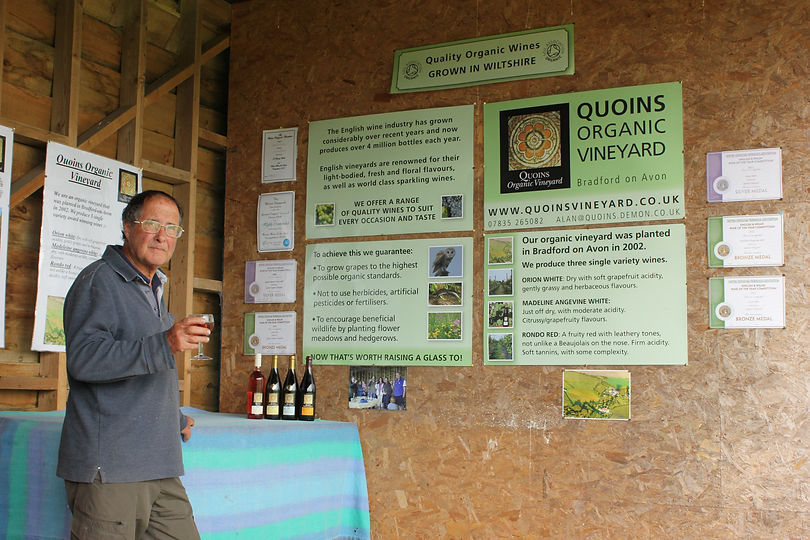
Our story
In 2002, Alan Chubb bought a three acre corner of a large field, near the pretty historic town of Bradford on Avon, where he’d settled with his young family. Until then, he’d worked worldwide, advising others on how to grow tree crops, like coffee or oranges. Now he wanted to get his hands dirty and see if he could succeed in making a living as a small farmer himself, using the organic methods he’d promoted for so long. The English wine renaissance was just starting, but there were still only a handful of organic vineyards. The vision for Quoins Organic Vineyard was born.
“We wanted to produce quality wines that we could be proud of. But we also needed to make a profit – this was no rich man’s hobby. It was to be a family place, where we could have parties and barbecues, and where the children could earn some pocket money by helping out. And we wanted to work in harmony with nature, using organic methods and creating a rich haven for wildlife.”
That winter, Alan planted three varieties of grape, two white and one red, based on careful research into disease resistance and suitability for English production. Two of the varieties, Orion and Rondo, were new, the result of pioneering German breeding. The third was a traditional French/German variety, Madeleine Angevine. Two acres were planted with vines, while around the edges of the vineyard, Jane Laurie, Alan’s wife, began her collection of fruit and nut trees, and planted a small woodland copse.
The vineyard was registered with the Soil Association, and in 2005, Alan celebrated the first small harvest. Since then, the vineyard has gone from strength to strength, with the wines regularly winning awards at UK Vineyards Association and Decanter tastings. In 2015, it was also registered with Demeter as biodynamic. In 2013, Sedlescombe Vineyard, the oldest organic vineyard in the UK, established in 1979, took over the production of the wine, and introduced a rose, produced from the first pressings of the Rondo grape, to complement the three single variety wines.
The once bleak and muddy field has been transformed, and wildlife has returned. Each season brings its own delights, from the song of the larks in early summer to the lurid spindle berries of autumn. The rich ecosystem is the perfect foundation for organic agriculture, ensuring a natural balance in the control of any pests or disease.
Note: Alan continues to do some consultancy, both overseas and in the UK (local food, organic vineyard establishment). Please get in touch if interested.

